
(3) Networked Control: Jian Sun, Beijing Institute of Technology, China (Chair)
Jinhui Zhang, Beijing Institute of Technology, China (Chair)
3.1. Speaker: Prof. Zhongqi Sun, Beijing Institute of Technology, China
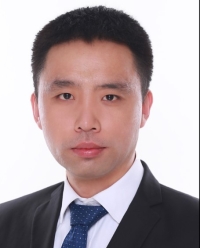
Talk Title: Event-based MPC with adaptive horizon for nonlinear systems
Abstract: Model predictive control (MPC) has the advantages of explicitly handling input and state constraints and optimizing the performance. Generally, traditional MPC requires a quite heavy computation, especially for nonlinear systems, to solve an optimization control problem (OCP) at each step. This may prevent its application to ``fast systems such as unmanned ground vehicles, quadrotor and servo systems, etc. This motivated us to design event- or self-triggered MPC to reduce the frequency of solving the OCP. The event-based approach is able to alleviate the computation burden, but it only through the reduction in the frequency of solving the OCP. The computational complexity at each update remains high, because the prediction horizon is usually a fixed constant. Therefore, we develop event-based MPC with adaptive horizon schemes, which saves the computing resources in two ways: decreasing the frequency of solving the OCP and reducing the complexity of each OCP.
Biography: Prof. Zhongqi Sun was born in Hebei Province, China, in 1986. He received the B.S. degree in Computer and Automation in 2010 from Hebei Polytechnic University, Hebei, China, and the Ph.D. degree in Control Science and Engineering in 2018 from Beijing Institute of Technology, Beijing, China. During September 2018 - August 2019, he was a postdoctoral researcher with the Faculty of Science and Engineering, University of Groningen, Netherlands. He is currently an assistant professor in the School of Automation of Beijing Institute of Technology. His research interests include multi-agent systems, model predictive control, machine learning and robotic systems.
3.2. Speaker: Prof. Yuanqing Wu, Guangdong University of Technology, China
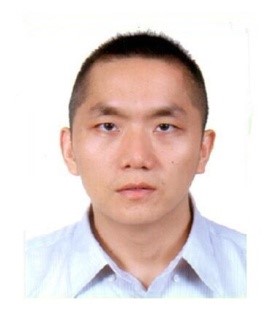
Talk Title: Intelligent control of autonomous unmanned system
Abstract: Unmanned intelligent vehicle is a high-tech integration of computer, sensing, information, communication, navigation, artificial intelligence and automatic control. The hardware design platform completes part modeling and virtual entity assembly through Solidworks 3D software, and then performs feasibility analysis on the vehicle body assembly, completes CAD part processing drawing and actual processing, assembly and testing. For parts with high processing difficulty and low strength requirements, 3D printers are used for printing to shorten the production cycle. Further, the development of the platform of intelligent vehicle requires a sensor measurement interface, an execution component control interface, a data visualization interface, an expansion interface, and a system communication interface. Then, a PCB circuit board and other hardware circuits of the motor drive portion and the main control portion are designed. Finally, utilization communication bus realizes information exchange between modules, which is convenient for maintenance and expansion. By integrating Zigbee communication, UWB positioning, inertial measurement, main control, motor drive, camera sensing, ultrasonic measurement and other modules, the platform can realize high-precision positioning in the room, real-time measurement and positioning information update vehicles coordination, formation control, ultrasonic obstacle avoidance, automatic heading calibration and real-time tracking of target objects.
Biography: Prof. Yuanqing Wu received the Ph.D. degree from the Department of Control Science and Engineering, Zhejiang University, Hangzhou, China, in 2016. He is currently a Professor with the School of Automation, Guangdong University of Technology, Guangzhou, China. He was a Research Assistant with the School of Electrical and Electronic Engineering, Nanyang Technology University, Singapore, from 2014 to 2015. His research interests include nonlinear control systems, networked control systems, output regulation, and artificial intelligence.
3.3. Speaker: Prof. Huaicheng Yan, East China University of Science and Technology, China
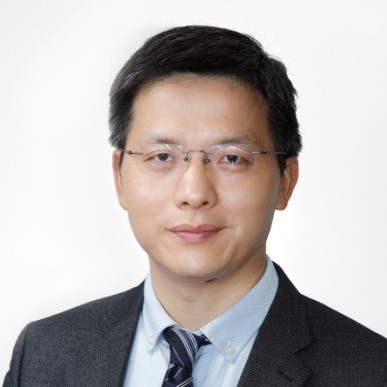
Talk Title: Event-triggered H-infinity control and filtering of networked systems with limited information
Abstract: This talk will present fundamental theory, challenges and some recent results on the concept of control and estimation for networked systems with limited information. Specifically, the problems of H-infinity control, network-based control design, and observer-based control design, H-infinity filtering in the presence of network complexities and imperfections are discussed. The sampled data are transmitted through networks. In order to reduce network traffic load and save communication resources, some novel event-triggered sampling schemes are proposed, under which data are transmitted only when the proposed triggering condition is violated. Co-design of event-triggered and distributed controller/filters are derived to guarantee well H-infinity robustness to system noises considered above. Finally, some concluding remarks and future directions are provided.
Biography: Prof. Huaicheng Yan received the B.Sc. degree in automatic control from the Wuhan University of Technology, China, in 2001, and the Ph.D. degree in control theory and control engineering from the Huazhong University of Science and Technology, China, in 2007. From 2007 to 2009, he was a Post-Doctoral Fellow with the Chinese University of Hong Kong. In 2011, he was a Research Fellow with the University of Hong Kong. In 2012, he was a Research Fellow with the City University of Hong Kong. He is currently a Professor with the School of Information Science and Engineering, East China University of Science and Technology, Shanghai, China. He serves as Associate Editor of International Journal of Robotics and Automation, etc. He has authored/coauthored more than 90 SCI journal papers, including 50 Automatica and IEEE Transctions papers. His research interests include networked control systems, multi-agent systems, information fusion, smart grids and robotics.
3.4. Speaker: Prof. Hongjiu Yang, Tianjin University, China
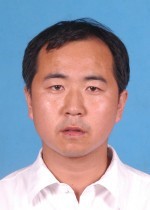
Talk Title: Studying on Networked Control System With Actuator Saturated
Abstract: By control studying on pneumatic control systems, quadrotors, wheeled robots, underwater suspension, teleoperation, space vehicle formation and other control systems, it is shown that not only dynamic performance of a system is reduced because of actuator saturation, but also there exists instability for a closed-loop system for actuator saturation. Fast sampling will produce a large number of data for control systems, which will bring many problems on transmission in network channel. Under fast sampling, problems on actuator saturation are shown as follows: estimation for null controllable region, estimating the domain of attraction, methods for increasing the domain of attraction, performance analysis in the domain of attraction, analysis on the domain of attraction for some kinds of systems, application of systems subject to actuator saturation, and so on. In addition to the problems on actuator saturation, there are also other problems on networked control systems, such as data quantification, predictive control, network security, cloud control, and so on. Therefore, it is interesting for studying effective methods to deal with the problems on actuator saturation in networked control systems.
Biography: Prof. Hongjiu Yang was born in Qinhuangdao, Hebei, China, in 1981. He received the B.S. degree in mathematics and applied mathematics and the M.S. degree in applied mathematics from the Hebei University of Science and Technology, Shijiazhuang, China, in 2005 and 2008, respectively, and the Ph.D. degree in control science and engineering from the Beijing Institute of Technology, Beijing, China, in 2011. He is currently a professor with the School of Electrical and Information Engineering, Tianjin University, Tianjin, China. His current research interests include robust control/filter theory, delta operator systems, networked control systems, and active disturbance rejection control.
3.5. Speaker: Prof. Jun Yang, Southeast University, China
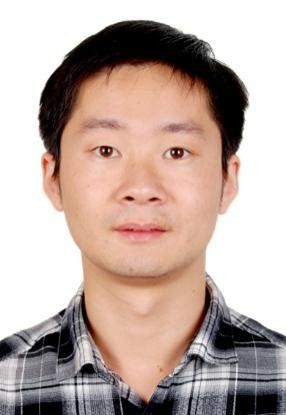
Talk Title: Event-triggered disturbance rejection control for networked control systems
Abstract: Networked control system has been widely used in a wide range of applications (e.g., sensor network, smart grid, intelligent transportation systems, etc.), However, the networked control systems are subject to the limited communication bandwidth. To handle this issue, event-triggered control was proposed and has been attracting plenty of attention in recent two decades. The underlying idea of event-triggered control is that the control tasks are executed only when there are necessary. Up to now, event-triggered control has been become one of important methods to save the communication resource. Meanwhile, various disturbances/uncertainties are inevitable in practical systems, which seriously deteriorate the closed-loop system performance, even make the systems unstable under the controllers designed for the nominal systems. Specially, for event-triggered control systems, it has shown that some well-known triggering mechanisms are not robust to arbitrary small disturbances in the sense that the required communication resources can grow without bounds. This talk is about how to design novel event-triggered active disturbance rejection control method to improve the robustness of networked control systems subject to disturbances/uncertainties while saving communication resource.
Biography: Prof. Jun Yang is a Professor in Department of Automation, Southeast University. He was selected as one of top-notch young talents under the National Ten Thousand People's Plan in 2018. He is a senior member of IEEE, the vice-chairman of Nanjing Branch of IEEE Industrial Electronics, member of Jiangsu Automation Society. He has been engaged in the research of nonlinear and disturbance rejection control theory, mechatronic control system and autonomous control technology. He held over 4 national scientific research projects, 6 provincial-level and enterprise cooperation projects, published more than 70 SCI papers, applied for more than 20 national invention patents and authorized more than 10. Cooperative research has been carried out with Manchester University, Loughborough University, RMIT University and West Sydney University. The research results have won one Natural Science Award of the Ministry of Education, Science and Technology Awards of Jiangsu Province, the Best Paper Award of the Institute of Engineering and Technology (IET), the Institute of Measurement and Control (IMC), the Japanese Association of Electrical and Electronic Engineers (IEEJ) and one of the 100 most influential international academic papers awards of China. Currently, he is an Associate Editor of Transactions of the Institute of Measurement and Control.
3.6. Speaker: Prof. Bo Shen, Donghua University, China
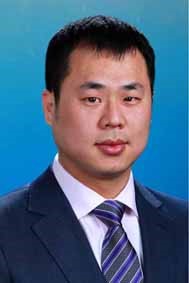
Talk Title: Event-Triggered Filtering or Control for Network Systems
Biography: Prof. Bo Shen received his B.Sc. degree in mathematics from Northwestern Polytechnical University, Xi'an, China, in 2003 and the Ph.D. degree in control theory and control engineering from Donghua University, Shanghai, China, in 2011. He is currently a Professor with the College of Information Science and Technology, Donghua University, Shanghai, China. From 2009 to 2010, he was a Research Assistant in the Department of Electrical and Electronic Engineering, the University of Hong Kong, Hong Kong. From 2010 to 2011, he was a Visiting PhD Student in the Department of Information Systems and Computing, Brunel University, U.K. From 2011 to 2013, he was a Research Fellow (Scientific co-worker) in the Institute for Automatic Control and Complex Systems, University of Duisburg-Essen, Germany. His research interests include nonlinear control and filtering, stochastic control and filtering, as well as complex networks and neural networks. He has published around 70 papers in refereed international journals.